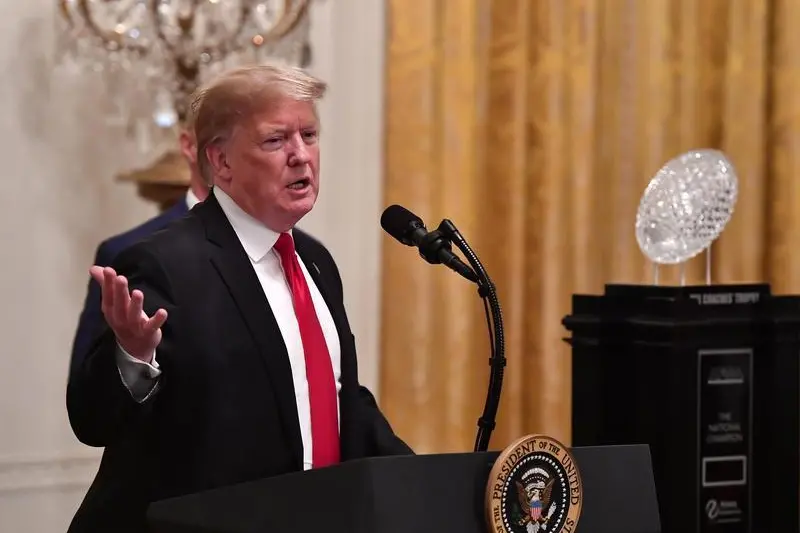PHOTO
WASHINGTON - Donald Trump’s pressure on the Federal Reserve is a paper tiger, so far. The U.S. president often bashes the central bank’s interest-rate increases on Twitter and has repeatedly said he’s not happy with Chairman Jerome Powell. It’s unhelpful but at least it’s transparent.
Powell has stood firm. Last week, he reiterated that the Fed doesn’t consider politics when making rate-setting decisions. In December, the central bank increased the federal funds range to 2.25 percent to 2.5 percent and projected two further rate hikes in 2019. But Powell and other Fed officials have struck a more dovish tone this month amid concerns that global growth is slowing.
The modern, largely independent Fed has its roots in presidential coercion. In a 1951 fight amid low interest rates and rising inflation, President Harry Truman invited the Fed’s rate-setting committee to the White House and afterward issued a statement saying the central bank backed his view on maintaining low borrowing rates.
Former Fed Chairman Marriner Eccles, who was then a board governor, released the Fed’s account of the meeting to contradict Truman. The clash led to the Treasury-Federal Reserve Accord, which separated government debt management from monetary policy.
The openness of Trump’s attacks makes them less insidious. Other presidents have been sneakier about their demands. In his memoir, former Fed chief Paul Volcker recalled a 1984 White House meeting with Ronald Reagan and his chief of staff, James Baker, who said the president was ordering the central bank chief not to raise interest rates before the next election.
Fast forward, and it’s still possible Trump could try to bully Powell privately – though a meeting hasn’t yet occurred and hasn’t been scheduled, either. The president could also install dovish allies on the seven-member Fed board. Former Fed economist Nellie Liang withdrew her name from consideration earlier this month, leaving one spot open. And while Trump may renominate Marvin Goodfriend for the other open seat, a requirement in a new session of Congress, he could change his mind.
The current five board members are strong believers in the Fed’s independence. Powell has also shored up political support in Congress. There’s still scope for a fight, though – especially, perhaps, behind
CONTEXT NEWS
- U.S. Federal Reserve Chairman Jerome Powell said on Jan. 10 that the central bank does not take political factors into consideration in monetary policy and that he is not bothered by pressure from President Donald Trump to lower interest rates. Powell was speaking at an event hosted by the Economic Club of Washington, D.C.
- In media interviews and on Twitter, Trump has repeatedly criticized the Fed’s decisions to raise rates and said he is unhappy with Powell, whom he chose to lead the central bank.
- Powell said he has not received an invitation to see Trump but would be open to a meeting. He has not met with the president since he was formally nominated in November 2017, he said.
(Editing by Richard Beales and Martin Langfield)
© Reuters News 2019





















